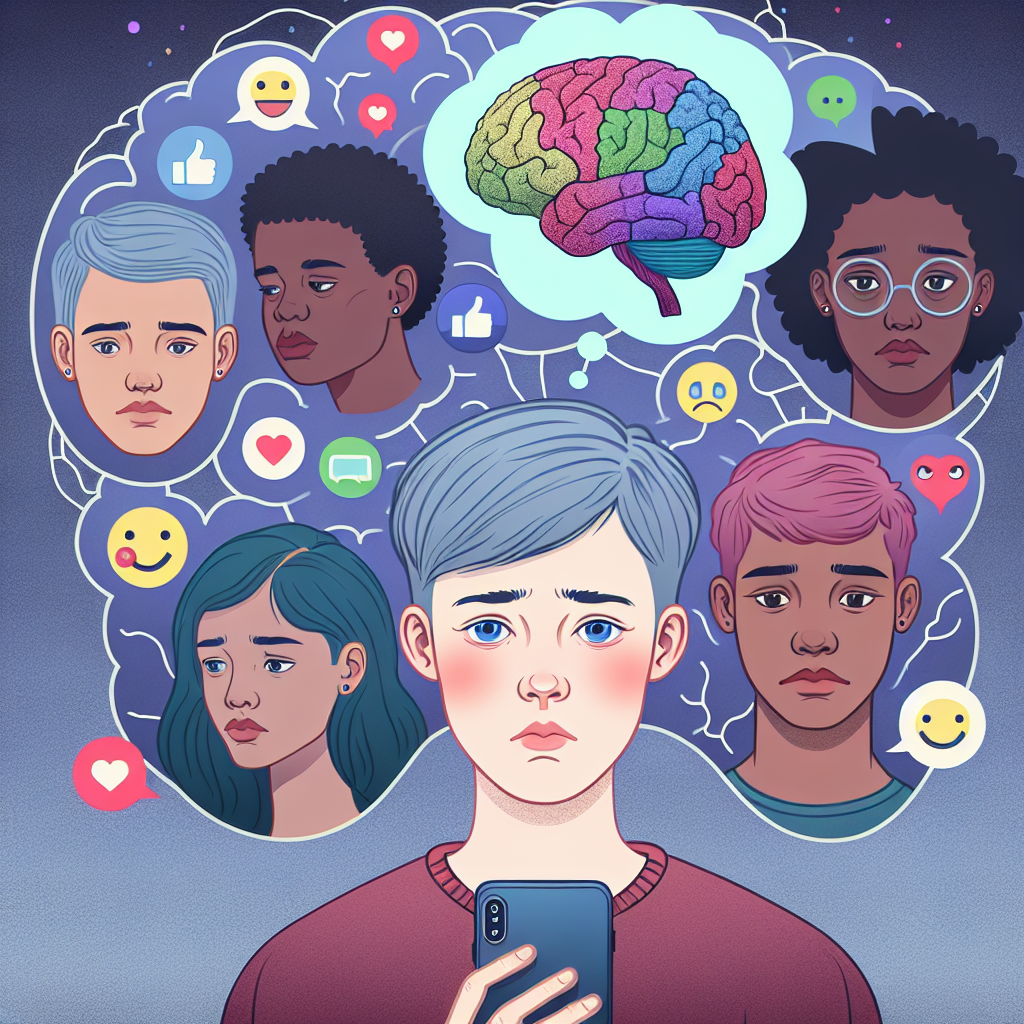Social media has become an integral part of our daily lives, especially for adolescents. With the rise of platforms like Instagram, Snapchat, and TikTok, young people are spending more time online than ever before. While social media has the potential to connect people from all corners of the globe and provide a platform for self-expression, it also comes with its fair share of negative consequences, particularly when it comes to mental health.
The role of social media on the mental health of today’s adolescents is a topic of much debate and concern among parents, educators, and mental health professionals. On one hand, social media can be a source of support, validation, and connection for young people who may feel isolated or marginalized in their offline lives. Adolescents can use social media to find like-minded individuals, join communities, and share their thoughts and feelings with others who understand and support them.
However, the flip side of social media is that it can also be a breeding ground for comparison, self-doubt, and negative self-esteem. Adolescents are constantly bombarded with images of “perfect” bodies, lifestyles, and relationships, which can lead to feelings of inadequacy and low self-worth. The pressure to conform to unrealistic standards set by influencers and celebrities on social media can take a toll on the mental health of young people, leading to anxiety, depression, and other mood disorders.
One of the key ways in which social media impacts the mental health of adolescents is through the phenomenon of “FOMO” or Fear Of Missing Out. Adolescents are constantly exposed to the highlights of their peers’ lives on social media, from parties and vacations to achievements and milestones. This constant stream of updates can make young people feel like they are missing out on all the fun and excitement that everyone else seems to be experiencing. This fear of missing out can lead to feelings of loneliness, isolation, and discontentment, as adolescents compare their own lives to the carefully curated images they see online.
Another way in which social media can negatively impact the mental health of adolescents is through cyberbullying. With the anonymity and distance that social media provides, bullies can easily target their victims without fear of consequences. Cyberbullying can take many forms, from spreading rumors and gossip to sharing embarrassing photos and videos. The constant harassment and humiliation that victims of cyberbullying experience can have devastating effects on their mental health, leading to feelings of worthlessness, shame, and even thoughts of self-harm or suicide.
In addition to FOMO and cyberbullying, social media can also contribute to feelings of inadequacy and low self-esteem through the phenomenon of “social comparison.” Adolescents are constantly exposed to images of their peers who seem to have it all – the perfect bodies, relationships, and lifestyles. This constant comparison can make young people feel like they are not measuring up to their peers, leading to feelings of insecurity, jealousy, and self-doubt.
Furthermore, the constant use of social media can also have a negative impact on the sleep and overall well-being of adolescents. The blue light emitted by screens can disrupt the production of melatonin, the hormone that regulates sleep, leading to insomnia and other sleep disorders. Adolescents who spend hours scrolling through their social media feeds late at night are at risk of developing poor sleep habits, which can have long-term consequences for their mental health and overall well-being.
Despite these negative consequences, it is important to note that social media is not inherently bad for the mental health of adolescents. When used in moderation and with intention, social media can be a valuable tool for self-expression, connection, and support. Parents, educators, and mental health professionals can help young people navigate the challenges of social media by teaching them healthy coping mechanisms, promoting self-care practices, and encouraging open and honest communication about their online experiences.
FAQs:
Q: What are some signs that my adolescent may be struggling with their mental health due to social media?
A: Some signs that your adolescent may be struggling with their mental health due to social media include changes in mood or behavior, increased isolation or withdrawal, changes in sleep patterns, decreased interest in activities they used to enjoy, and expressions of low self-worth or self-harm.
Q: How can I help my adolescent navigate the challenges of social media and protect their mental health?
A: You can help your adolescent navigate the challenges of social media by setting limits on screen time, encouraging open and honest communication about their online experiences, promoting positive self-esteem and self-care practices, and seeking professional help if needed.
Q: Are there any positive aspects of social media on the mental health of adolescents?
A: Yes, social media can have positive effects on the mental health of adolescents, such as providing a platform for self-expression, connection, and support. Adolescents can use social media to find like-minded individuals, join communities, and share their thoughts and feelings with others who understand and support them.




Leave A Comment